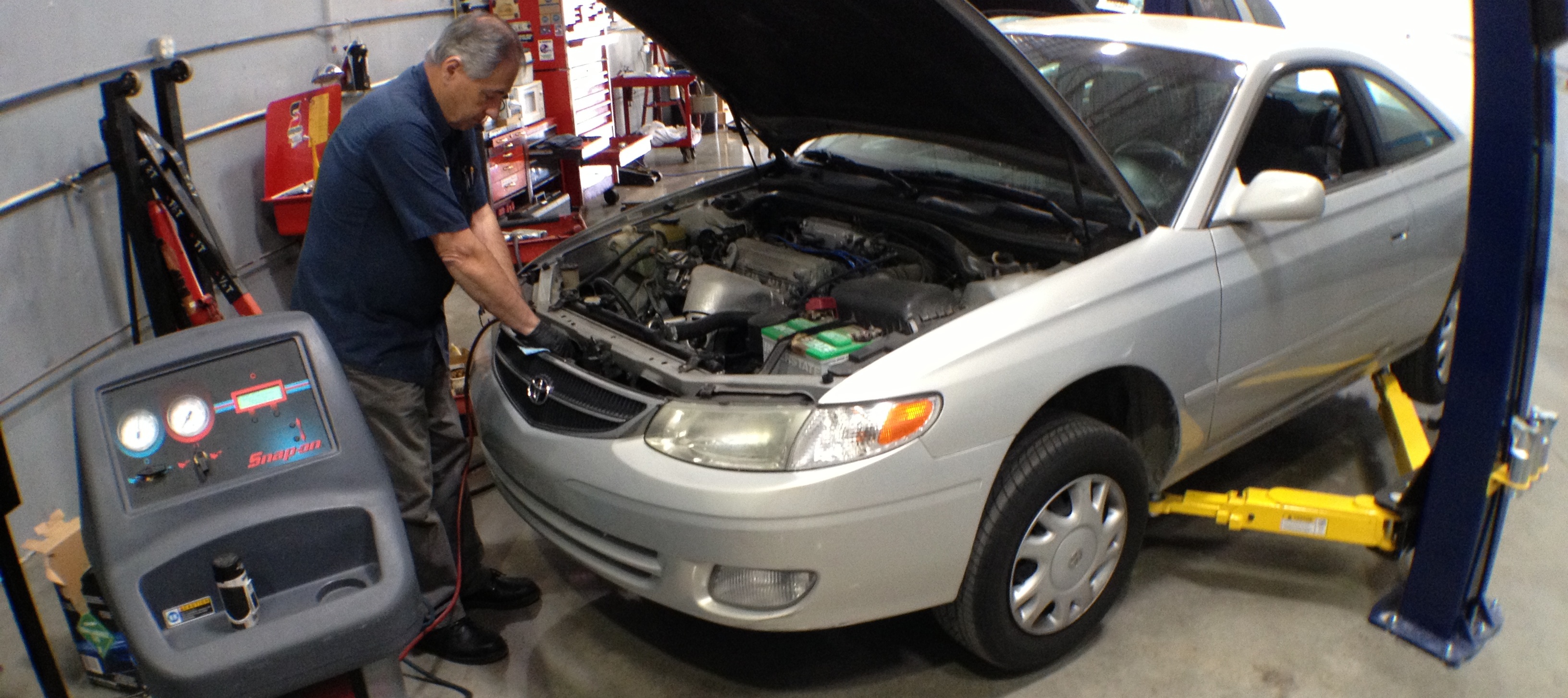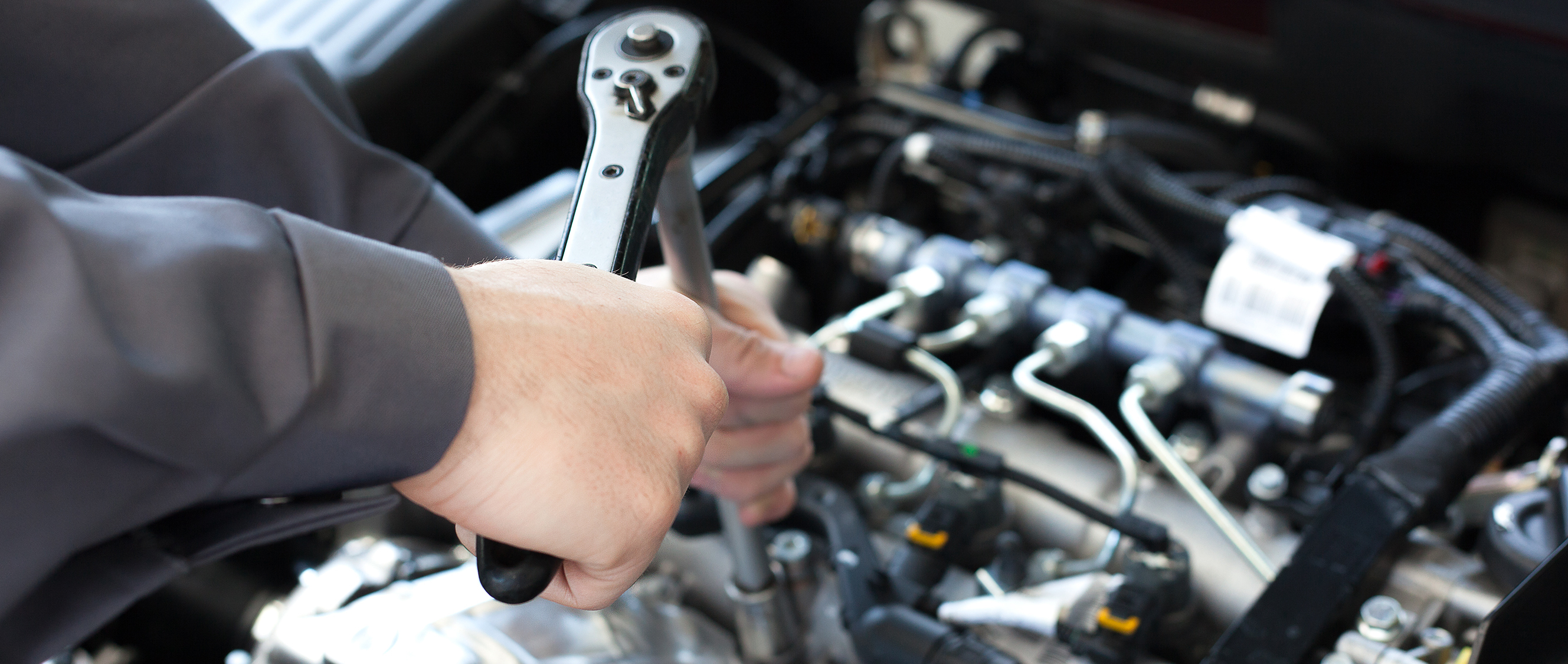Do you notice your car is not as peppy as it used to be? Have you heard unusual noises? These could be signs your car is due for a tune-up.
Your Car is Not as Fuel Efficient as it Used to Be
One of the first signs your car needs a tune-up is decreased fuel efficiency. This can be caused by several factors, such as a dirty air filter, clogged fuel filter, or worn spark plugs.

Sluggish Acceleration and Power Loss
If your car is not accelerating as quickly as it used to, it could be a sign of a problem with the ignition system, fuel system, or air intake system.

Rough Idling
A rough idle is another common sign of a needed tune-up. The idle speed is controlled by the engine’s computer, which adjusts the air-fuel mixture to keep the engine running smoothly.

Frequent Stalling
If your car is stalling more than usual, it could be a sign of a problem with the fuel system, ignition system, or air intake system.

Signs of a Needed Tune-Up: Understanding the Basics
A tune-up is a maintenance service that helps keep your car running smoothly and efficiently. It involves inspecting and replacing various components, such as spark plugs, air filters, and belts. By performing a tune-up, you can improve your car’s performance, fuel economy, and emissions.

Advanced Warning Signs: Identifying Hidden Issues
In addition to the common signs, there are also some less noticeable symptoms that may indicate a need for a tune-up. These include:
- Hesitation or jerking during acceleration
- Knocking or pinging noises
- Increased exhaust emissions
- Hard starting

Expert Recommendations: Ensuring Optimal Performance
Regular tune-ups are essential for maintaining your car’s performance and longevity. Experts recommend getting a tune-up every 30,000 to 50,000 miles, depending on your driving habits and the type of vehicle you drive.

Maintaining Fuel Efficiency: The Tune-Up Connection
Tune-ups can significantly impact your car’s fuel efficiency. By optimizing the engine’s performance, you can reduce fuel consumption and save money on gas.

DIY Tune-Up Tips: Empowering the Home Mechanic
For those who enjoy working on their vehicles, a tune-up can be a manageable DIY project. However, it’s important to have the necessary tools and knowledge. Consult your car’s repair manual or seek professional guidance if you’re unsure about any aspect of the process.

The Benefits of Regular Tune-Ups: Ensuring a Smooth Ride
Regular tune-ups not only improve your car’s performance but also extend its lifespan. By proactively addressing minor issues, you can prevent more significant and costly repairs in the future.

Fun Facts About Tune-Ups: Uncovering the Quirks
Tune-ups have played a significant role in automotive history. Here are some interesting facts:
- The first tune-ups were performed in the early 1900s
- Regular tune-ups were once recommended every 3,000 miles
- Modern cars require less frequent tune-ups
- Tune-ups can improve your car’s resale value

Troubleshooting Tune-Up Issues: Identifying and Resolving Problems
If you encounter any problems during a tune-up, don’t panic. Here are some troubleshooting tips:
- Double-check all connections and ensure they are tight
- Replace any damaged or worn components
- Reset the vehicle’s computer
- Seek professional assistance if the problem persists

Avoiding Costly Repairs: The Long-Term Benefits of Tune-Ups
While tune-ups may seem like an expense in the short term, they can save you money in the long run. Regular tune-ups can prevent more significant and costly repairs, such as engine problems, transmission issues, and brake failures.

Listicle: Signs Your Car Needs a Tune-Up
Here’s a checklist of the common signs that indicate your car needs a tune-up:
- Decreased fuel efficiency
- Sluggish acceleration and power loss
- Rough idling
- Frequent stalling
- Hesitation or jerking during acceleration
- Knocking or pinging noises
- Increased exhaust emissions
- Hard starting

Question and Answer: Addressing Your Concerns
- Q: How often should I get a tune-up?
A: The recommended frequency for tune-ups varies depending on the make and model of your car. Consult your vehicle’s repair manual or a mechanic for specific guidance.
- Q: Can I perform a tune-up myself?
A: While some basic tune-up tasks can be done at home, such as replacing spark plugs and air filters, it’s generally recommended to leave more complex tasks to a qualified mechanic.
- Q: What are the benefits of a tune-up?
A: Tune-ups improve your car’s performance, fuel economy, and emissions. They can also extend the lifespan of your vehicle and prevent costly repairs.
- Q: What happens if I ignore the signs of a needed tune-up?
A: Neglecting to address the signs of a needed tune-up can lead to more severe problems with your car’s engine, transmission, or other components. This can result in decreased performance, increased fuel consumption, and potentially expensive repairs.
Conclusion of Signs of Needing a Tune Up On Your Car
Regular tune-ups are essential for maintaining your car’s optimal performance and longevity. By addressing the signs that indicate a need for a tune-up, you can prevent more significant problems, improve your car’s efficiency, and ensure a smoother and safer driving experience.
